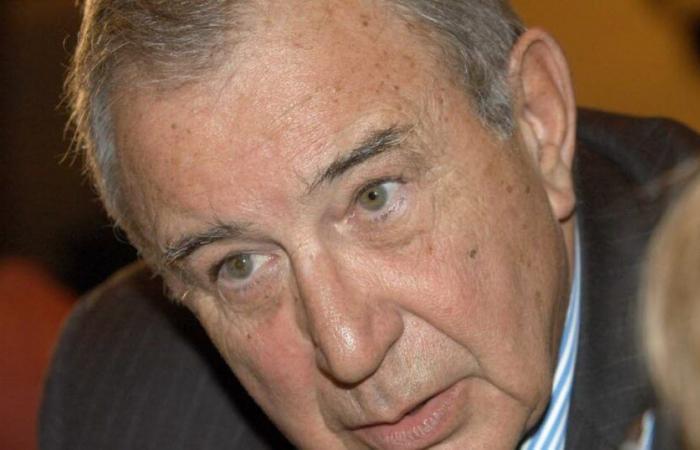Figure of French industrial employers, Didier Pineau-Valencienne died Thursday at the age of 93, after having radically transformed the Schneider group which he had managed for 18 years, with a sometimes sulphurous reputation as a shock capitalist.
Reached by the age limit, DPV handed over the reins of the electrical equipment group in 1999.
A mass will be celebrated Tuesday in Boulogne-Billancourt, near Paris, and he will be buried Friday in Vendée, according to the death notice published by his family in Le Figaro.
A stint at Gallimard
Born on March 21, 1931 into a family of Vendée doctors, Didier Pineau-Valencienne quickly knew that he would not follow this path: “My father told me that I did not have the qualities. I took the lesson, and did something else. »
It will be business. After the Janson de Sailly high school in Paris, he joined HEC, then the business school of Dartmouth College in the United States, an unusual American foray at the time.
Passionate about poetry, he joined Gallimard, where he met André Malraux and Albert Camus.
But the publishing world is too narrow for him. In 1958, he joined the Franco-Belgian group Empain-Schneider.
He managed subsidiaries in difficulty there, then joined Rhône-Poulenc in 1973, where he refined his image as a business recovery under the authority of Jean Gandois, future boss of bosses.
Nicknamed “DPV the scrapyard”
Returning to Schneider in 1981, as president, he refocused on the electricity professions this company created 45 years earlier by the Schneider brothers and which had become a heterogeneous conglomerate of 150 companies. The steel industry and shipyards are sold, as are packaging, machine tools, sports and leisure activities, telephony, real estate, etc.
“From the Schneider of 1981, nothing remains except the name,” he said.
In 1984, “DPV the scrapyard” – a nickname – could not avoid the resounding liquidation of Creusot-Loire, the largest bankruptcy in French industry, affecting nearly 30,000 employees.
Cumbersome nicknames flourish to describe this round-looking boss, but the standard-bearer of pure and hard capitalism: “gravedigger”, “butcher”, “unscrupulous raider”…
“Manager of the Year 1991”
In 1988, DPV took over the Grenoble group Télémécanique and merged it with its subsidiary Merlin Gerin. His effigy is burned by disgruntled employees. Another battle, the hostile takeover bid in 1991 for the American electrician Square D.
“It took an iron will,” remembers Gaël de la Rochère, one of his colleagues. “GE, then the world's leading competitor, stood up against Schneider, it was very hard. Jack Welch (then head of General Electric, Editor's note), was the emblematic boss of the world at that time. »
The operation opens the doors to the United States for Schneider. Le Nouvel Economiste elects DPV “manager of the year 1991”. In 18 years, turnover has multiplied by 17, the group has been reduced from debt.
Without him, “the Schneider of today would not exist”
“We owe DPV the cleanup of the conglomerate left by the family adventure,” Jean-Pascal Tricoire, current CEO of Schneider Electric, told AFP. “It took this courage, in the 1980s which were not very favorable to restructuring: we were more in the process of nationalizing everything! It wasn't easy to confront the politicians and the media. »
“He knew little about the sector, but had the intelligence to work with Jean Vaujany, boss of Merlin Gerin, a major industrialist,” he adds.
“DPV embodied the landing of technical companies in finance. He was the man of capitalism, of mergers and acquisitions… a great financier. Without this era, the Schneider of today would not exist,” he emphasizes.
Imprisoned for 12 days
But in 1994, Didier Pineau-Valencienne was indicted for alleged irregularities in the management of Belgian subsidiaries. Interrogated in Brussels, he was imprisoned for 12 days.
The event marks the business community and strains Franco-Belgian diplomatic relations.
This father of four children, a practicing Catholic, will make the headlines one last time in 2006, at the age of 75, with the trial of the Belgian case. He was found guilty, but not sentenced due in particular to the age of the facts.
Business






